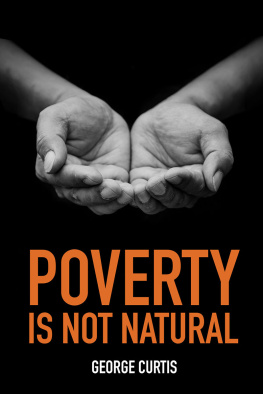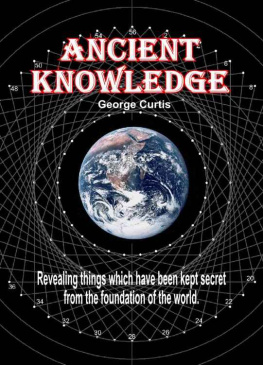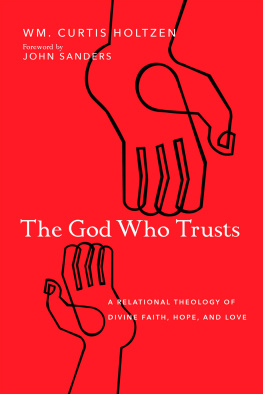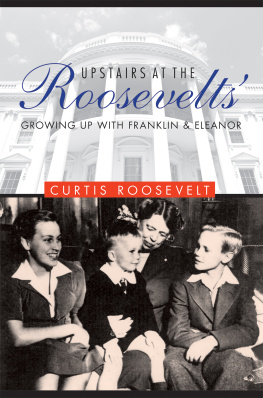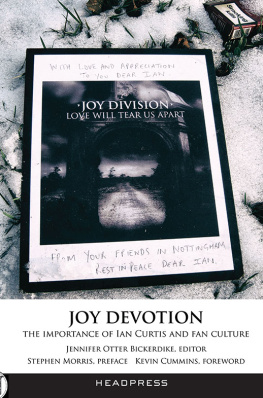George Curtis - Poverty is not natural
Here you can read online George Curtis - Poverty is not natural full text of the book (entire story) in english for free. Download pdf and epub, get meaning, cover and reviews about this ebook. year: 2020, publisher: Shepheard Walwyn, genre: Politics. Description of the work, (preface) as well as reviews are available. Best literature library LitArk.com created for fans of good reading and offers a wide selection of genres:
Romance novel
Science fiction
Adventure
Detective
Science
History
Home and family
Prose
Art
Politics
Computer
Non-fiction
Religion
Business
Children
Humor
Choose a favorite category and find really read worthwhile books. Enjoy immersion in the world of imagination, feel the emotions of the characters or learn something new for yourself, make an fascinating discovery.
- Book:Poverty is not natural
- Author:
- Publisher:Shepheard Walwyn
- Genre:
- Year:2020
- Rating:3 / 5
- Favourites:Add to favourites
- Your mark:
- 60
- 1
- 2
- 3
- 4
- 5
Poverty is not natural: summary, description and annotation
We offer to read an annotation, description, summary or preface (depends on what the author of the book "Poverty is not natural" wrote himself). If you haven't found the necessary information about the book — write in the comments, we will try to find it.
Poverty is not natural — read online for free the complete book (whole text) full work
Below is the text of the book, divided by pages. System saving the place of the last page read, allows you to conveniently read the book "Poverty is not natural" online for free, without having to search again every time where you left off. Put a bookmark, and you can go to the page where you finished reading at any time.
Font size:
Interval:
Bookmark:
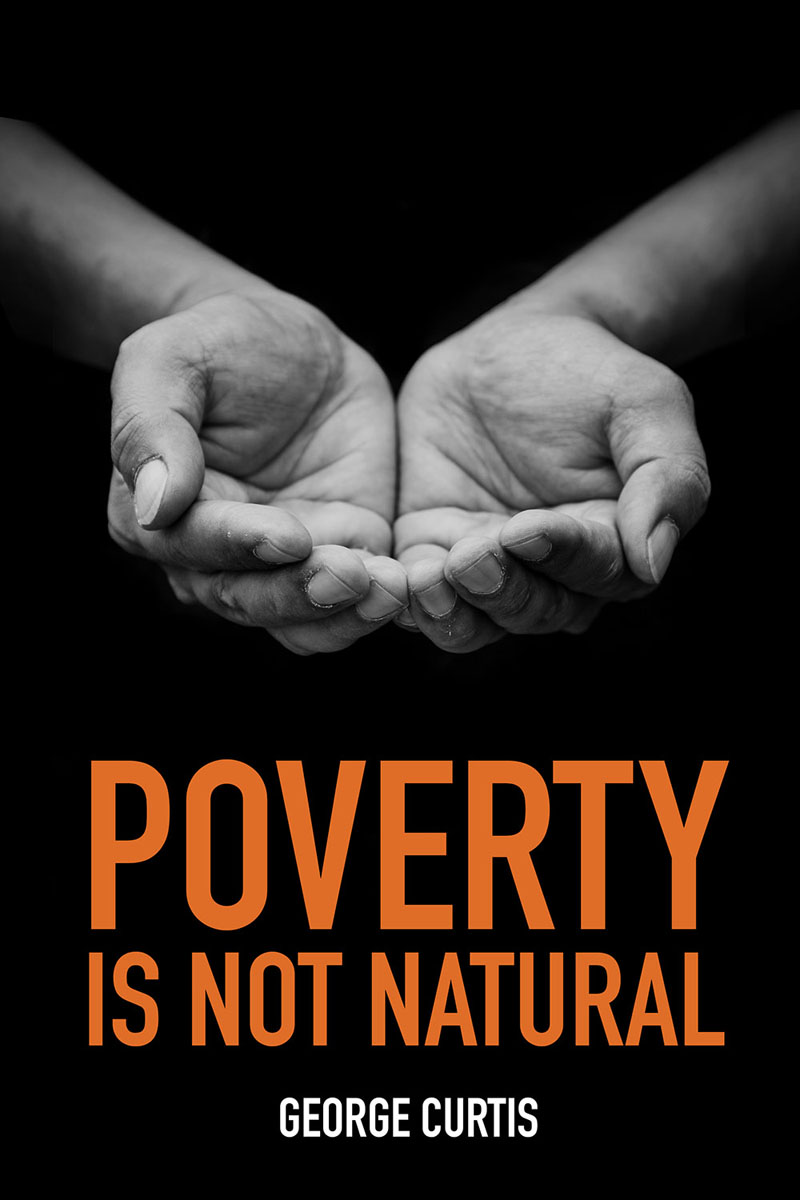

George Curtis 2020
All rights reserved. No part of this book may be reproduced in any form without the written permission of the publisher, Shepheard-Walwyn (Publishers) Ltd
First published in 2020 by
Shepheard-Walwyn (Publishers) Ltd
107 Parkway House, Sheen Lane,
London SW14 8LS
www.shepheard-walwyn.co.uk
www.ethicaleconomics.org.uk
British Library Cataloguing in Publication Data
A catalogue record of this book is available from the British Library
ISBN: 978-0-85683-525-4
Typeset by Alacrity, Chesterfield, Sandford, Somerset
Printed and bound in the United Kingdom
by 4edge Ltd
I WOULD LIKE to express my gratitude to my publisher, Anthony Werner, for his careful editing of the manuscript, and to Kai Dattani for attuning it to the concerns of a younger generation.
I N HIS T RAFALGAR S QUARE SPEECH in 2005 Nelson Mandela offered a challenge, which remains relevant to each one of us today, and a call to action:
Overcoming poverty is not a task of charity, it is an act of justice. Like slavery and apartheid, poverty is not natural. It is man-made and it can be overcome and eradicated by the actions of human beings. Sometimes it falls on a generation to be great. YOU can be that great generation.
The United Nations lists ending poverty in all its forms everywhere as its first Sustainable Development Goal. This is a noble and desirable aspiration, but it is questionable whether the IMFs neo-classical trickle down theory or a redistributive tax system and an expensive, bureaucratic welfare state are adequate for the task. The evidence shows that inequality is on the increase both in the developed and developing world, regardless of economic policy, suggesting the existence of a common cause which neither is addressing.
This book picks up the gauntlet that Mandela threw down and offers a completely different approach, seeking first to establish the fundamental cause of poverty worldwide. Drawing on the work of the 19th century American economist, Henry George, whose book, Progress and Poverty, probed the question of why it was that, as the Industrial Revolution increased wealth enormously, poverty was not lessened. On the contrary, the richer the society, the greater the inequality. The position remains the same today as it was in the 19th century, again suggesting a common cause, some flaw in the way in which wealth is distributed.
Adam Smith was in no doubt about the cause:
As soon as land becomes private property, the landlord demands a share of almost all the produce which the labourer can either raise, or collect from it. His rent makes the first deduction from the produce of the labour which is employed upon land.
This raises a moral issue: is it right that ownership of land should entitle the owner to take the lions share of the wealth produced when they may have contributed little or nothing to its production? Indeed, if they have contributed, then their entitlement to a share should be based on their labour, just as it would be for their co-workers, not on their ownership of the land.
In fact, is land ownership necessary for the efficient functioning of an economy? Clearly, nobody is going to sow if they cannot reap the benefits of their work, so some form of land tenure is necessary to ensure that producers get the product of their labour, but the present economic arrangements have created a system whereby a class of people, landowners, are entitled to a share of the wealth produced without having to contribute to its production, thereby depriving the producers of their full reward. This is a man-made system and is not sacrosanct. It can be replaced by a fairer system.
Henry George expressed a steadfast belief in the efficacy of natural law, properly understood and respected, to erase social problems problems which, indeed, result from societys denial of natural law. Solving the curse of poverty requires distinguishing what is rightly private property from what is public property, thereby aligning the economy and society with natural law.
This book explores the moral and practical arguments for a major economic reform that would end involuntary poverty by changing the way government is funded. As Nelson Mandela pointed out above: poverty is not natural and can be overcome and eradicated by human beings. He also stressed that overcoming poverty is not a task of charity, it is an act of justice.
Adam Smith, The Wealth of Nations, Bk 1, ch 8.
I believe that there is in true Christianity a power to regenerate the world
Henry George, The Land Question
H ENRY G EORGE is best known for his 1879 classic, Progress and Poverty. This sought to explain why poverty tends to increase and deepen, just as human society becomes more efficient at producing wealth. In his Introduction, he described how it was natural to expect, and it was expected, that labor-saving inventions would lighten the toil and improve the condition of the laborer, and how the enormous increase in the power of producing wealth would make real poverty a thing of the past. Yet, in
Observing that poverty is as much a feature where autocratic government prevails as where political power is in the hands of the people, George inferred that there must be a common cause for this failure. He observed that we find the deepest poverty, the sharpest struggle for existence, and the most enforced idleness, where population is densest, wealth greatest, and the machinery of production and exchange most highly developed.
He acknowledged that wealth had been greatly increased by technological progress and the average standard of living had been raised with labour-saving devices making all manner of everyday tasks less toilsome, but in this the poorest did not share.
I do not mean that the condition of the lowest class has nowhere nor in anything been improved; but that there is nowhere any improvement which can be credited to increased productive power. I mean that the tendency of what we call material progress is in nowise to improve the condition of the lowest class in the essentials of healthy, happy human life.
In illustration of this, George offered an image that has been widely quoted:
The new forces, elevating in their nature though they be, do not act upon the social fabric underneath, as was for a long time hoped and believed, but strike it at a point intermediate between top and bottom. It is as though an immense wedge were being forced, not underneath society, but through society. Those who are above the point of separation are elevated, but those who are below are crushed down.
Unfortunately, Henry Georges explanation of the cause of this phenomenon, and the solution he proposed, have received less attention. By and large, history has looked upon Henry Georges Progress and Poverty more as a stirring call to justice than as a source of rational understanding of social problems, or as a practical means of addressing them. But he warned:
This association of poverty with progress is the great enigma of our times. It is the central fact from which spring industrial, social and political difficulties that perplex the world, and which statesmanship and philanthropy and education grapple in vain. From it comes the clouds that overhang the future of the most progressive and self-reliant nations. It is the riddle which the Sphinx of Fate puts to our civilization and which not to answer is to be destroyed.
Next pageFont size:
Interval:
Bookmark:
Similar books «Poverty is not natural»
Look at similar books to Poverty is not natural. We have selected literature similar in name and meaning in the hope of providing readers with more options to find new, interesting, not yet read works.
Discussion, reviews of the book Poverty is not natural and just readers' own opinions. Leave your comments, write what you think about the work, its meaning or the main characters. Specify what exactly you liked and what you didn't like, and why you think so.

